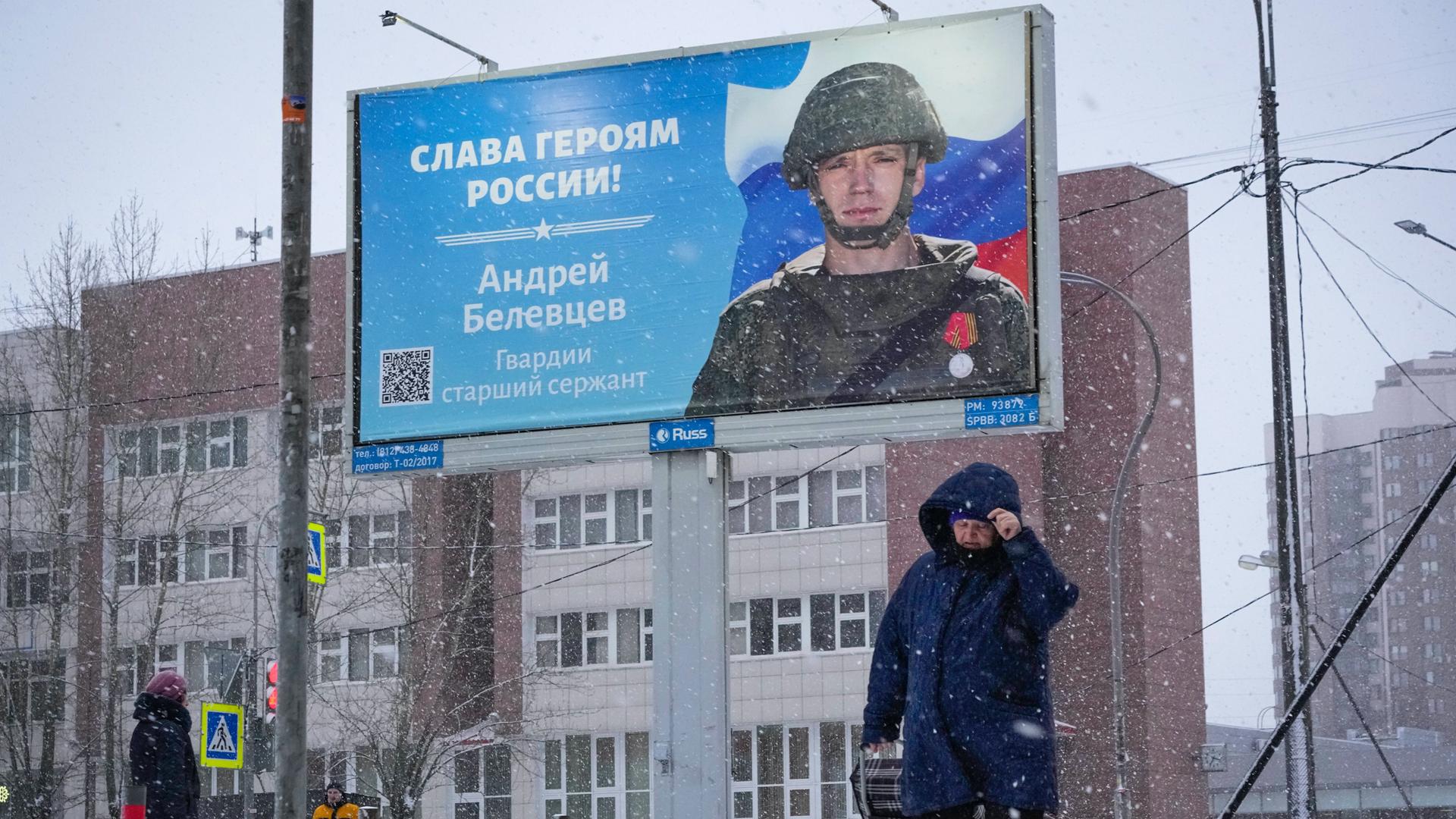On a recent Saturday night, crowds of young people pack into an old theater in Bishkek, Kyrgyzstan, where there’s a pop-up party for the LGBTQ community.
Below a DJ on the stage, friends and couples dance in the dim light under high ceilings painted with agricultural scenes from the Soviet era.
Events like these aren’t typical in Central Asia. It’s a region where talking about LGBTQ issues is often taboo. Recently, Kyrgyzstan’s government took away transgender people’s right to change their pronouns on official documents. In nearby countries, like Uzbekistan, being gay is a crime.
But that hasn’t stopped many LGBTQ Russians from migrating to Central Asia, where they don’t need visas to live long term. When Russia started drafting men to fight in Ukraine last fall, thousands fled to neighboring countries in Central Asia. Now that the draft is paused, some Russian men are going home.
But many people from Russia’s LGBTQ community aren’t returning. Their decision to stay put is partially the result of a wider crackdown on LGBTQ rights in Russia. Some people in this story didn’t want to use their names because they’re worried about being identified by Russian authorities.
One man in Bishkek, from Siberia, said that he, like many Russian LGBTQ people, always planned to leave the country someday. He dreamed of getting married in Portugal to his boyfriend, but now, he said, those plans are on hold.
“It’s much harder [for Russians] to get a Schengen visa [that covers 27 European countries] now, and we have no idea how that might change going forward,” he said.
For the moment, getting married abroad in one of the few countries that allows same-sex marriage for nonresidents, like Portugal, seems impossible.
He came to Bishkek because he participated in a military training program in school, similar to ROTC in the US. So, there was a good chance he would have been one of the first people called up to serve in Ukraine. He also encountered homophobia serving in Russia’s military.
“Soldiers can physically abuse gay people in the army, and it’s understood that there are no laws to protect your rights,” he said.
Many LGBTQ Russians say they feel safer in Kyrgyzstan because the country has far less restrictive laws against LGBTQ people, and there are more resources for the community. But they don’t plan to stay forever.
Inside a library in downtown Bishkek, students sit at tables studying French.
One of the students who takes classes there also left Russia to avoid the draft. He hopes to move to France someday, because he loves the language and culture. He would also like to settle in a country that is more tolerant to LGBTQ people, like France, and where same-sex marriage is legal.
“I’m tired of always holding back the way I want to express myself, because you have to think all the time about whether it’s safe or not,” he said.
Russia passed a law recently that makes any reference to LGBT issues in media, such as movies or books, a criminal offense.
Some Russian politicians and religious leaders say the new law is part of a larger battle with the West that’s playing out in Ukraine. They claim to be protecting Russians from Western values that promote LGBTQ rights and threaten traditional families.
The new legislation against so-called “LGBT propaganda,” along with another recent law that requires many Russian organizations who receive foreign funding to be labeled as “foreign agents,” have both made it much more complicated for prominent groups that defend LGBTQ rights in Russia to keep working.
The man in the library finds this aspect of the laws — linking someone’s sexual identity to the influence of foreign powers in Russia — particularly offensive.
“You can’t be gay just because that’s who you are [according to the law],” he said. “No, it’s because those bad Americans or Europeans somehow seduced you and affected your thinking.”
How exactly the new law will be implemented is unclear. But Polina, a woman who works with the Russian LGBT Network, a human rights organization, said it could have a disproportionate effect on women.
”If a woman in Russia with children starts a relationship with another woman, then she could potentially have her kids taken away,” Polina said.
In theory, the authorities, or an ex-husband, could use the law in court to accuse a bisexual woman with children of subjecting her kids to illegal, LGBTQ propaganda.
But Polina also said that the law is inspiring change. Lots of Russians who never took part in activism before are getting involved. And although some activists are leaving Russia, she said that the majority stayed to continue their work.
For LGBTQ Russians who do want to leave, the closeness of Central Asia and the visa-free regimes in the former Soviet countries there makes the region one of their best options.
But the fact that countries like Kyrgyzstan have close relations with Russia also worries some people.
“There’s a lot of uncertainty, because it’s possible that Russia might ask Kyrgyzstan to deport all Russian men back home,” said the man who previously served in Russia’s military.
Back in Russia, they could potentially be jailed for avoiding the draft. Many LGBTQ Russians are instead biding their time — waiting until they can emigrate somewhere safer.
